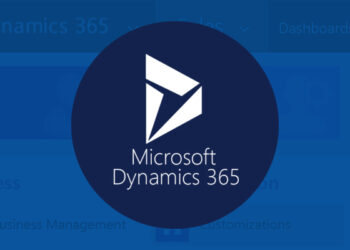Dubai, known as the commercial hub of the Middle East, presents a thriving environment for business growth and expansion. If you’re an entrepreneur looking to tap into the vibrant market opportunities in Dubai, obtaining a general trading license is a crucial first step. This blog serves as a comprehensive guide to help you navigate the process of acquiring a general trading license in Dubai. From understanding the benefits to fulfilling the requirements, we’ll explore everything you need to know to unleash your business potential in this dynamic city.
The Advantages of a General Trading License in Dubai
A general trading license in Dubai offers several advantages that make it an attractive option for entrepreneurs:
a. Versatility in Business Activities:
With a general trading license, you gain the flexibility to engage in a wide range of business activities. You can import, export, distribute, and trade various goods and commodities, subject to the regulations and restrictions of relevant authorities. This versatility allows you to adapt to market demands and explore multiple avenues of revenue generation.
b. Access to a Global Market:
Dubai’s strategic location at the crossroads of Europe, Asia, and Africa positions it as a gateway to a vast global market. By obtaining a general trading license, you can leverage Dubai’s extensive logistics and transportation infrastructure to access international markets and establish global trade networks.
c. Tax Benefits and Incentives:
Dubai provides a favourable tax environment for businesses. As a general trading licensee, you can take advantage of tax-free zones, exemptions, and incentives offered by the government. These benefits contribute to cost savings and improve your business’s overall financial viability.
d. Business Reputation and Trust:
Dubai’s reputation as a global business hub adds credibility and trust to your enterprise. Holding a general trading license enhances your brand image, instills confidence in potential customers and partners, and opens doors to collaborations and partnerships with local and international entities.
Fulfilling the Requirements for a General Trading License
To obtain a trade license in Dubai, you must meet certain requirements as stipulated by the Department of Economic Development (DED) and other relevant authorities. Here are the key steps involved:
a. Business Entity Formation:
Choose the appropriate legal structure for your business, such as a sole proprietorship, partnership, or limited liability company (LLC). Depending on the structure, you may need to appoint local sponsors or partners.
b. Trade Name Reservation:
Select a unique and relevant trade name for your business and ensure its availability. Reserve the trade name with the DED to secure your brand identity.
c. Business Plan:
Prepare a comprehensive business plan that outlines your company’s objectives, target market, products, and marketing strategies. The business plan serves as a roadmap for your venture and is often required during the license application process.
d. Office Space and Tenancy Contract:
Acquire suitable office space in Dubai and obtain a tenancy contract from the landlord or the relevant authority. The office space should comply with the DED’s requirements for size, location, and zoning.
e. Local Sponsorship:
For certain business structures, such as LLCs, you’ll need to secure the services of a local sponsor or partner. The sponsor must be a UAE national and will hold a minority share in the company while providing support and guidance.
f. License Application:
Submit the license application along with the required documents to the DED or the relevant free zone authority. The documents typically include the application form, passport copies, NOC (No Objection Certificate) from the sponsor (if applicable), and the tenancy contract.
g. Approval and License Issuance:
Upon review of your application, the DED or free zone authority will evaluate your documents and conduct any necessary inspections. If all requirements are met, you will receive approval and the general trading license will be issued. The license will specify the permitted activities, trading categories, and validity period.
Choosing the Right Free Zone or Mainland Setup
When obtaining a general trading license in Dubai, you have two options: setting up your business in a free zone or in the mainland. Each option has its own advantages and considerations:
a. Free Zone Setup:
Dubai offers numerous free zones tailored to specific industries, such as Jebel Ali Free Zone, Dubai Multi Commodities Centre (DMCC), and Dubai Airport Free Zone Authority (DAFZA). Free zones provide benefits like 100% foreign ownership, tax exemptions, simplified company setup procedures, and access to world-class infrastructure. However, businesses established in free zones have limitations on conducting business within the local UAE market.
b. Mainland Setup:
Setting up your business in the mainland allows you to operate across the UAE market, including Dubai. With a mainland general trading license, you have a wider customer base and can participate in government tenders and contracts. However, mainland businesses require a local sponsor or partner who holds a 51% share in the company. It’s crucial to choose a reliable and trustworthy local partner to ensure a smooth partnership.
Consider your business objectives, target market, operational requirements, and expansion plans when deciding between a free zone or mainland setup. Consulting with business setup experts or legal advisors can help you make an informed decision based on your specific needs.
Post-License Obligations and Compliance
After obtaining your general trading license, there are certain post-license obligations and compliance requirements to fulfil:
a. Visa and Immigration Processes:
Depending on the business structure and your role in the company, you may need to apply for residency visas and work permits for yourself and your employees. The visa application process involves medical tests, document submissions, and approvals from the relevant immigration authorities.
b. Customs and Import/Export Regulations:
As a general trading licensee, you must comply with the customs and import/export regulations set by the UAE government. Familiarize yourself with the documentation, duties, taxes, and procedures required for importing and exporting goods. Stay updated with any changes in regulations to ensure smooth trade operations.
c. Accounting and Financial Compliance:
Maintain accurate financial records, prepare financial statements, and comply with accounting standards set by the UAE government. Consider hiring accounting professionals or outsourcing accounting services to ensure proper financial management and adherence to tax regulations.
d. Renewal and License Amendments:
General trading licenses in Dubai have a validity period, typically ranging from one to three years. Plan ahead for license renewals to avoid any disruptions in your business operations. Additionally, if there are any changes to your business activities, ownership structure, or trade name, you may need to apply for license amendments and obtain approvals from the relevant authorities.


















